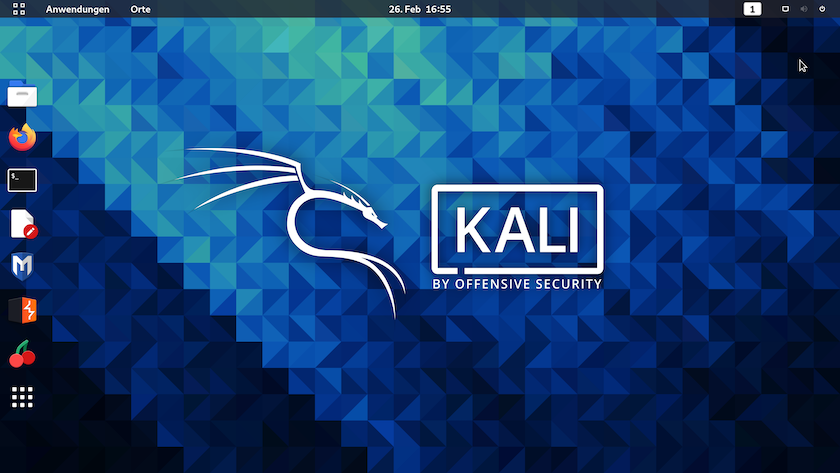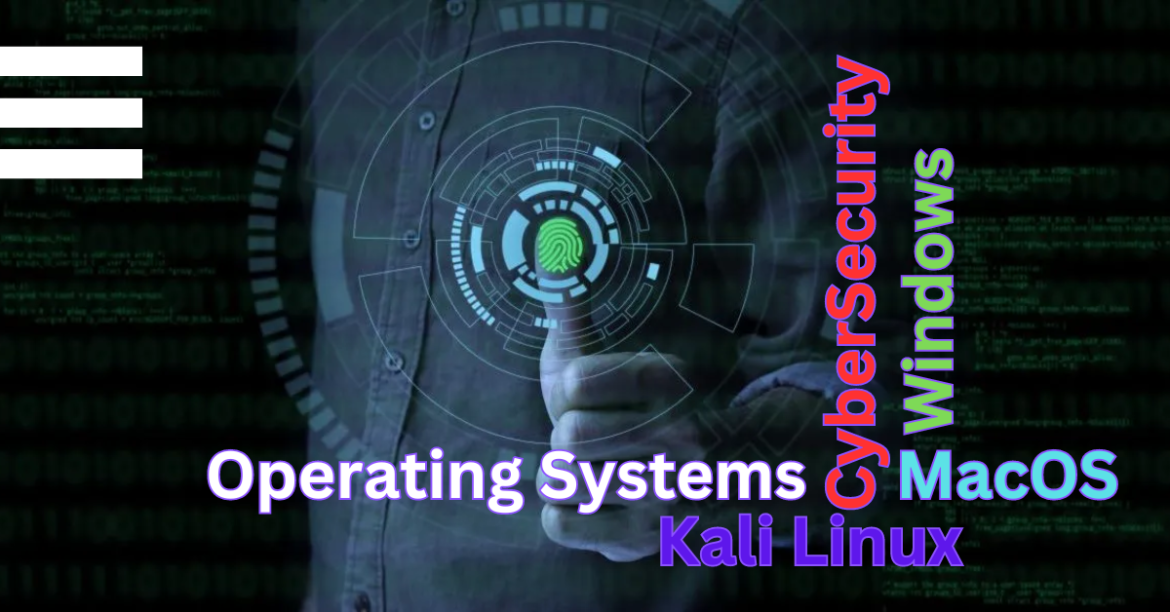In today’s digital landscape, safeguarding our online world is very important. While talking about cybersecurity, selecting the operating system also is very important. Here we are discussing different Operating System for Cyber Security Professionals with their pros and cons. And it will assist you in helping to choose the right operating system for your requirements in the journey of cybersecurity.
Linux: A Sturdy Foundation for Cyber Security
Linux, is often considered the top choice among open-source operating systems. It gained an excellent reputation among cybersecurity professionals. Here’s why Linux is a favored choice:
Security: Linux boasts robust security features, akin to a formidable fortress guarding against digital threats.
Customization: It offers the flexibility to tailor your OS to your specific needs, much like customizing a car to suit your preferences.
Command-Line Tools: Linux provides a plethora of command-line tools, functioning as a versatile toolbox for in-depth security analysis.
Stability: Linux is renowned for its stability, resulting in fewer system crashes and a dependable working environment.
However, it’s worth noting that Linux may present a learning curve for newcomers due to its command-line interface.
Kali Linux: Tailored for Security Testing
Kali Linux, often dubbed the ethical hacker’s toolkit, is a specialized distribution designed for penetration testing and security assessments. It’s a top choice for security professionals. Here’s why:
Pre-Installed Tools: Kali Linux comes pre-loaded with an extensive array of cyber security tools, eliminating the need for time-consuming setup.
Community Support: Its vibrant community serves as a valuable resource for assistance and knowledge sharing.
Focus on Security Testing: Kali Linux streamlines establishing a secure testing environment and offers specialized tools for ethical hacking and security testing.
However, it’s important to note that Kali Linux is not intended for everyday use and has a steep learning curve, making it less suitable for beginners.

MacOS: Apple’s Secure Option
For those who favor Apple products, MacOS is a viable choice. It boasts strong built-in security features such as Gatekeeper, XProtect, and FileVault. Here’s why it’s an attractive option:
Security Features: MacOS includes robust built-in security features, acting as a secure vault for your data.
Unix Base: Built on a Unix-based foundation, MacOS offers powerful command-line tools, akin to having a well-stocked toolbox at your disposal.
However, MacOS can be relatively expensive, and customization options may be limited compared to other operating systems.
Windows: Familiar and User-Friendly
Windows, with its user-friendly interface, is a well-known and widely-used operating system. It offers compatibility with numerous cyber security tools. Here’s what to consider:
User-Friendly: Windows is renowned for its user-friendly interface, making it accessible even for beginners.
Wide Software Compatibility: Many cyber security tools are compatible with Windows, providing a plethora of options.
However, due to its prevalence, Windows is frequently targeted by hackers. Consequently, regular updates and vigilant security measures are essential.
Virtual Machines: Versatile and Secure
Virtualization technology has gained popularity among cyber security professionals. It allows you to run multiple operating systems on a single machine. This approach offers several advantages:
Isolation: Virtual machines provide an additional layer of security by isolating systems from the host OS.
Multiple Environments: They enable the creation and testing of various OS configurations and network setups.
Compatibility: Virtual machines support different OSes and tools, ensuring compatibility across a wide range of applications.
However, virtual machines can be resource-intensive, demanding powerful hardware to operate smoothly. Additionally, setting up and managing virtual machines may pose challenges, particularly for those new to the process.
Choosing the Ideal OS for Your Cyber Security Career
Selecting the right operating system is a pivotal decision in your cyber security journey. The ideal choice depends on your specific goals and requirements. To aid in your decision-making process, consider the following factors:
Your Skill Level: If you’re just starting in the field, a user-friendly OS like Windows or MacOS may be a suitable choice to help you build a solid foundation.
Specialization: If your focus is on ethical hacking and security testing, Kali Linux offers a comprehensive suite of tools tailored to your needs.
Customization: Linux stands out for its flexibility and customization options, allowing you to create a personalized cyber security environment.
Budget: Consider the cost associated with each OS, especially if you’re on a tight budget. Linux and some virtualization options offer cost-effective alternatives.
Hardware: Ensure that your computer hardware can support your chosen OS and any virtual machines you intend to run.
Community and Support: Evaluate the availability of a supportive community and resources for your chosen OS, as this can greatly aid in your learning and troubleshooting efforts.
Conclusion: Your Cyber Security Pathway
In the ever-evolving landscape of cyber security, the operating system you select plays a crucial role in shaping your career. Each OS has its strengths and weaknesses, making it essential to choose one that aligns with your objectives and preferences.
Remember, your journey in cyber security is not limited to a single choice of operating system. As you progress in your career, you may find value in learning and adapting to various OS environments to expand your skillset and meet the diverse challenges of the cyber security landscape.
Ultimately, your commitment to continuous learning, adaptability, and unwavering dedication to safeguarding the digital realm will be your greatest assets in the world of cyber security. Whether you choose Linux, Kali Linux, MacOS, Windows, or virtual machines, your role as a cyber security professional is paramount in securing our interconnected world.
